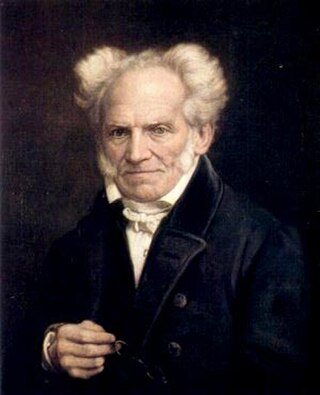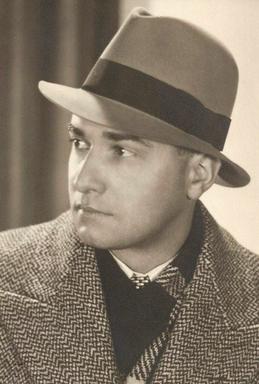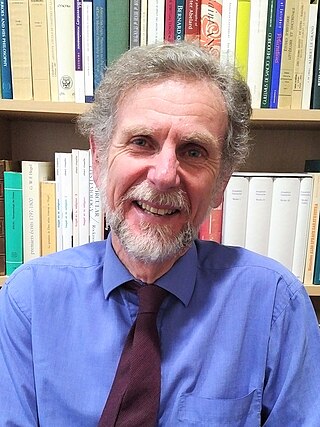Related Research Articles

German philosophy, meaning philosophy in the German language or philosophy by German people, in its diversity, is fundamental for both the analytic and continental traditions. It covers figures such as Gottfried Wilhelm Leibniz, Immanuel Kant, Georg Wilhelm Friedrich Hegel, Karl Marx, Friedrich Nietzsche, Martin Heidegger, Ludwig Wittgenstein, the Vienna Circle, and the Frankfurt School, who now count among the most famous and studied philosophers of all time. They are central to major philosophical movements such as rationalism, German idealism, Romanticism, dialectical materialism, existentialism, phenomenology, hermeneutics, logical positivism, and critical theory. The Danish philosopher Søren Kierkegaard is often also included in surveys of German philosophy due to his extensive engagement with German thinkers.

Karl Theodor Jaspers was a German-Swiss psychiatrist and philosopher who had a strong influence on modern theology, psychiatry, and philosophy. After being trained in and practicing psychiatry, Jaspers turned to philosophical inquiry and attempted to discover an innovative philosophical system. He was often viewed as a major exponent of existentialism in Germany, though he did not accept the label.

Ernst Alfred Cassirer was a German philosopher. Trained within the Neo-Kantian Marburg School, he initially followed his mentor Hermann Cohen in attempting to supply an idealistic philosophy of science.

Wilhelm Dilthey was a German historian, psychologist, sociologist, and hermeneutic philosopher, who held G. W. F. Hegel's Chair in Philosophy at the University of Berlin. As a polymathic philosopher, working in a modern research university, Dilthey's research interests revolved around questions of scientific methodology, historical evidence and history's status as a science. He could be considered an empiricist, in contrast to the idealism prevalent in Germany at the time, but his account of what constitutes the empirical and experiential differs from British empiricism and positivism in its central epistemological and ontological assumptions, which are drawn from German literary and philosophical traditions.
In philosophy, transcendence is the basic ground concept from the word's literal meaning, of climbing or going beyond, albeit with varying connotations in its different historical and cultural stages. It includes philosophies, systems, and approaches that describe the fundamental structures of being, not as an ontology, but as the framework of emergence and validation of knowledge of being. These definitions are generally grounded in reason and empirical observation, and seek to provide a framework for understanding the world that is not reliant on religious beliefs or supernatural forces. "Transcendental" is a word derived from the scholastic, designating the extra-categorical attributes of beings.

Louis Dupré was a Belgian-American philosopher, professor at Yale University.
Robert Buford Pippin is an American philosopher. He is the Evelyn Stefansson Nef Distinguished Service Professor in the John U. Nef Committee on Social Thought, the Department of Philosophy, and the College at the University of Chicago.
Stanley Rosen was Borden Parker Bowne Professor of Philosophy and Professor Emeritus at Boston University. His research and teaching focused on the fundamental questions of philosophy and on the most important figures of its history, from Plato to Heidegger.

Eugen Fink was a German philosopher.
Speculative realism is a movement in contemporary Continental-inspired philosophy that defines itself loosely in its stance of metaphysical realism against its interpretation of the dominant forms of post-Kantian philosophy.
Hugh J. Silverman was an American philosopher and cultural theorist whose writing, lecturing, teaching, editing, and international conferencing participated in the development of a postmodern network. He was executive director of the International Association for Philosophy and Literature and professor of philosophy and comparative literary and cultural studies at Stony Brook University, where he was also affiliated with the Department of Art and the Department of European Languages, Literatures, and Cultures. He was program director for the Stony Brook Advanced Graduate Certificate in Art and Philosophy. He was also co-founder and co-director of the annual International Philosophical Seminar since 1991 in South Tyrol, Italy. From 1980 to 1986, he served as executive co-director of the Society for Phenomenology and Existential Philosophy. His work draws upon deconstruction, hermeneutics, semiotics, phenomenology, aesthetics, art theory, film theory, and the archeology of knowledge.
Steven Crowell is an American philosopher and professor emeritus at Rice University, where he taught from 1983 to 2022. Crowell earned his Ph.D. in Philosophy from Yale University in 1981. His work has largely focused on twentieth-century European philosophy, including phenomenology, existentialism, hermeneutics, and post-structuralism.

William James Desmond is an Irish philosopher who has written on ontology, metaphysics, ethics, and religion.

Paul Walter Franks is the Robert F. and Patricia Ross Weis Professor of Philosophy and Judaic Studies at Yale University. He graduated with his PhD from Harvard University in 1993. Franks' dissertation, entitled "Kant and Hegel on the Esotericism of Philosophy", was supervised by Stanley Cavell and won the Emily and Charles Carrier Prize for a Dissertation in Moral Philosophy at Harvard University. He completed his B.A and M.A, in Philosophy, Politics and Economics at Balliol College, Oxford. Prior to this, Franks received his general education at the Royal Grammar School, Newcastle, and studied classical rabbinic texts at Gateshead Talmudical College.
Tom Rockmore is an American philosopher. Although he denies the usual distinction between philosophy and the history of philosophy, he has strong interests throughout the history of philosophy and defends a constructivist view of epistemology. The philosophers whom he has studied extensively are Kant, Fichte, Hegel, Marx, Lukács, and Heidegger. He received his Ph.D. from Vanderbilt University in 1974 and his Habilitation à diriger des recherches from the Université de Poitiers in 1994. He is Distinguished Professor Emeritus at Duquesne University, as well as Distinguished Humanities Chair Professor at Peking University.
Jean Grondin is a Canadian philosopher and professor. He is a specialist in the thought of Immanuel Kant, Hans-Georg Gadamer, and Martin Heidegger. His research focuses on hermeneutics, phenomenology, German classical philosophy and the history of metaphysics.

Rudolf Eisler was an Austrian philosopher.

Vittorio Hösle is an Italian-born German philosopher. He has authored works including Hegels System (1987), Moral und Politik, and Der philosophische Dialog (2006).
References
- ↑ "Profile for Thomas K Seung at UT Austin".
- ↑ Plato Rediscovered: Human Value and Social Order (Lanham, MD: Rowman & Littlefield, 1996), p. 327.
- ↑ "Graduate School Awards & Prizes; Yale Graduate School of Arts & Sciences".